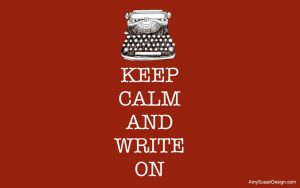There are many rules in the construction of good story. One of the most important is the art of instant impact- the art of capturing the attention of your readers/potential readers as quickly as possible.
Take your lead from the balladeers and the storytellers of history. If they didn’t impress the audience who gathered to hear their tales by the end of the second line they’d uttered, then they wouldn’t earn enough money to eat that night.

For the modern writer this lesson is a good one. There are so many books in the world that, if you don’t take a firm grip of your reader’s imagination within the first two or three paragraphs (if not sentences), then the chances of you selling your work is automatically harder. If not impossible. Editors and agents read hundreds of first paragraphs each month. If you don’t engage them straight away they won’t read more than a few pages. Consequently, every single word you have written after page four is in danger of being nothing but a waste of time.

Here are a few ways to create instant impact and grab that elusive audience- and hopefully keep them grabbed!
– Start with some powerful first line dialogue. Something that makes you want to know what follows, and why what is being said, is being said. Such as…
“Last night I dreamt I went to Manderley again.” – (Rebecca, Daphne du Maurier)
– Add immediate tension by starting in the thick of the action. Such as…
Dr Clouston could barely keep himself on the seat. The wheels of his carriage kept cracking over humps and puddles, breaking the night’s silence as they rode frantically towards Dundee. – (The Strings Murder, Oscar de Muriel)
– Build a scene on paper that draws the reader in so much, that they want to be there- or that leaves them feeling relieved that they aren’t. Such as…
“It was the best of times, it was the worst of times, it was the age of wisdom, it was the age of foolishness, it was the epoch of belief, it was the epoch of incredulity, it was the season of Light, it was the season of Darkness, it was the spring of hope, it was the winter of despair, we had everything before us, we had nothing before us, we were all going direct to Heaven, we were all going direct the other way.” – (A Tale of Two Cities, Charles Dickens)
– Start with a sentence that makes sense- but makes the reader need to keep going to find out what on earth is going on. Such as…
“It was a bright cold day in April, and the clocks were striking thirteen.” – (1984, George Orwell)
– Begin with an intriguing recollection. A situation that your novel will later explain. Such as…
“Many years later, as he faced the firing squad, Colonel Aureliano Buendía was to remember that distant afternoon when his father took him to discover ice.” – (One Hundred Years of Solitude, Gabriel García Márquez)

Happy writing,
Jenny x

margaret cammiss
Excellent advice Jenny. I keep revisiting the first few paras of my otherwise finished second novel, hoping to sprinkle a little of that fairy dust…
margaret cammiss
Excellent advice Jenny. I keep revisiting the first few paras of my otherwise finished second novel, hoping to sprinkle a little of that fairy dust…